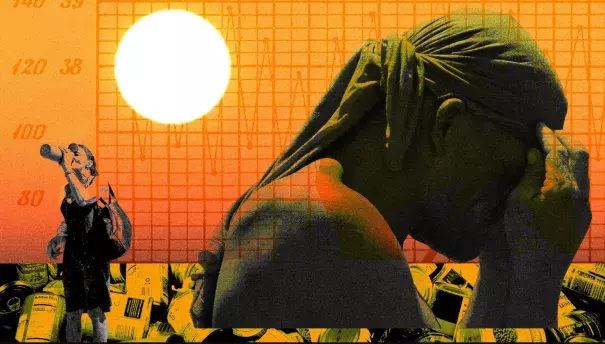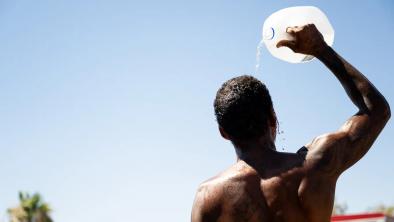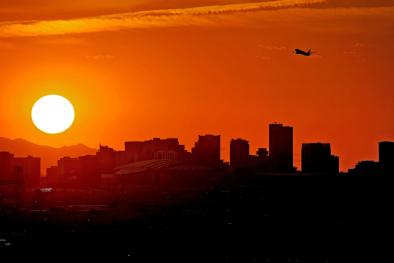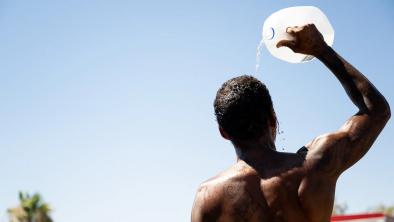Extreme Heat Exacerbates Intersecting Inequities

Native American tribes, people facing food insecurity, and people experiencing homelessness are among those hardest hit by the extreme heat — virtually impossible without climate change — across the country. The Fort Mojave Indian tribe, along the Colorado River in what is now California, Nevada and Arizona, have long lived with heat, but climate-fueled extreme heat and drought are threatening both lives, and lifeways. The Pipa Aha Macav (People of the River) depend on the river for their identity and way of life, tribal administrator Ashley Hemmers told NPR. Food insecure households are also particularly vulnerable to extreme heat, with financial constraints sometimes forcing difficult decisions between staying hydrated, fed, and cool. Centuries of ethnic cleansing of, systematic discrimination against Native Americans have contributed to disproportionate food insecurity and homelessness in Native communities. Data show nearly a quarter of all Native Americans in the US are food insecure, more double that of white Americans, and Native Americans living on tribal lands face some of the most drastic housing needs in the country, according to the National Low Income Housing Coalition.
(Pipa Aha Macav: NPR; Food insecurity: Axios; Homelessness: CBS; Climate Signals background: Extreme heat and heatwaves)
To receive climate stories like this in your inbox daily click here to sign up for the Hot News Newsletter from Climate Nexus:
Related Content





